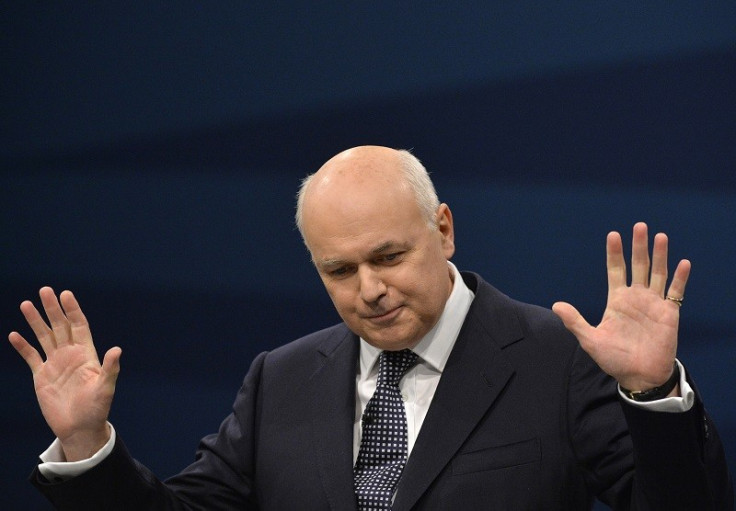Duncan Smith's Welfare Reforms in 'Meltdown' And Threaten Cameron's Spending Cap

The government's struggling welfare reforms are claimed to be in meltdown amid revelations the self-imposed spending cap could be breached while thousands of vulnerable and seriously ill people have been left for weeks awaiting vital benefit payments.
The devastating new assessments have come on the day welfare reform minister Iain Duncan Smith attempted to salvage the reputation of his radical reforms by rolling out his much-delayed and criticised Universal Credit to more parts of the country.
But the move was overshadowed by the latest revelations, demands for his sacking and for David Cameron to "get a grip" of the situation.
Duncan Smith's ambitious welfare reforms have already been buffeted by a series of setbacks with reports detailing cost over-runs, rollout targets missed and inadequate IT systems abandoned.
He has been accused of arrogance, not being up to the job, and refusing to take any advice from other parties, who actually support the principles behind his reforms.
Now an internal government memo leaked to the BBC has shown spending on the employment and support allowance (ESA), which replaces previous sickness benefits, is running at such a level it could break the government's £119.5bn welfare cap.
If that point was reached, Duncan Smith would be forced to explain himself to the Commons and plead for extra cash. Department spokesmen have flatly rejected the suggestion, insisting the cap will not be breached and that action had already been taken to deal with any projected over spending
Labour, however, have pointed to the human cost of the crisis claiming it is a result of Duncan Smith assuming many of those claiming previous benefits were fully able to work, allowing him to cut their payments. But officials have now discovered the majority are genuine claimants and there is no room for significant cuts.
Meanwhile, a separate report by the public accounts committee of MPs has claimed implementation of the new personal independence payment (PIP) designed to replace disability allowance, and also save money, was "nothing short of a fiasco".
Committee chairman Margaret Hodge said Duncan Smith had let down some of the most vulnerable people in society, with many seriously ill being forced to wait for long periods before even being assessed for payments.
Labour spokesman Rachel Reeves said the system was now in "meltdown" and it was time David Cameron got an urgent grip of the situation.
All this comes after Duncan Smith was earlier forced to delay his Universal Credit reforms and even officially "re-set" the entire programme after a series of major setbacks, all of which he denied were threatening to destroy the project.
The irony is that he has won many admirers across all parties for his willingness to attempt the sort of radical welfare reform that previous governments have run away from, fearing just the sort of political rows that are now threatening to engulf him.
For his part, the minister has remained unbending, some say obstinate, in his determination to press ahead regardless and has flatly rejected all criticisms, always insisting his project will be "on time and on budget".
He undoubtedly sees the reforms as his legacy, after a disastrous and brief two-year period as Conservative Party leader from 2001.
But with no sign of any significant changes to the struggling programme likely, it is clear it will be the next government which has to deal with the consequences of the project.
© Copyright IBTimes 2024. All rights reserved.






